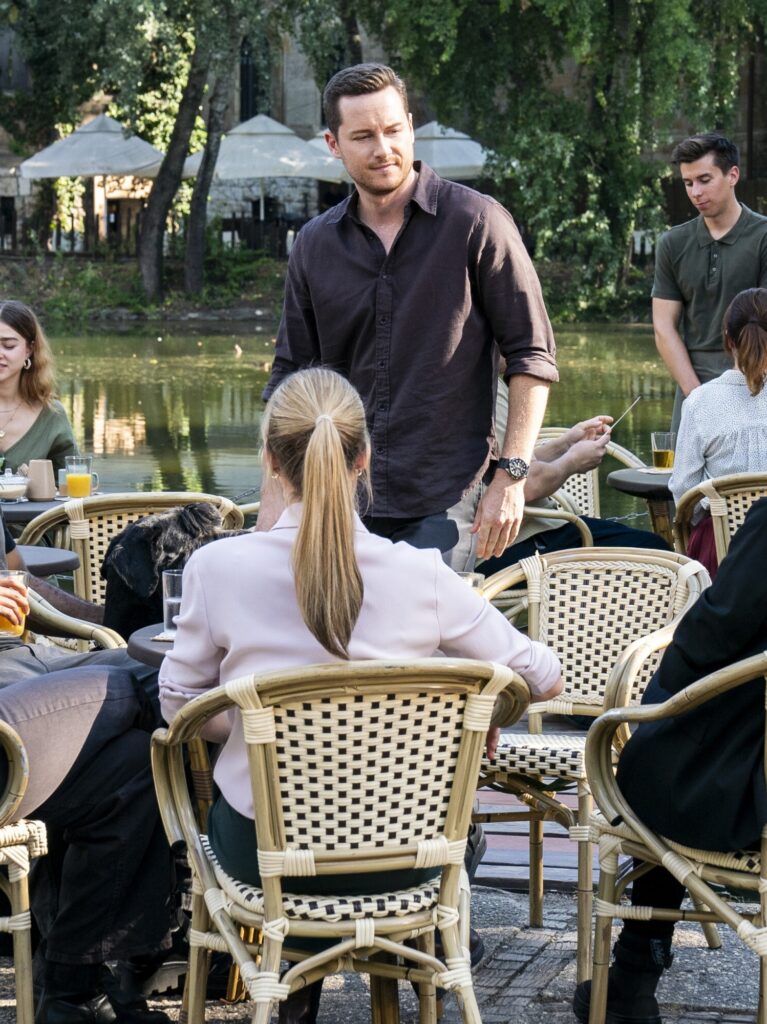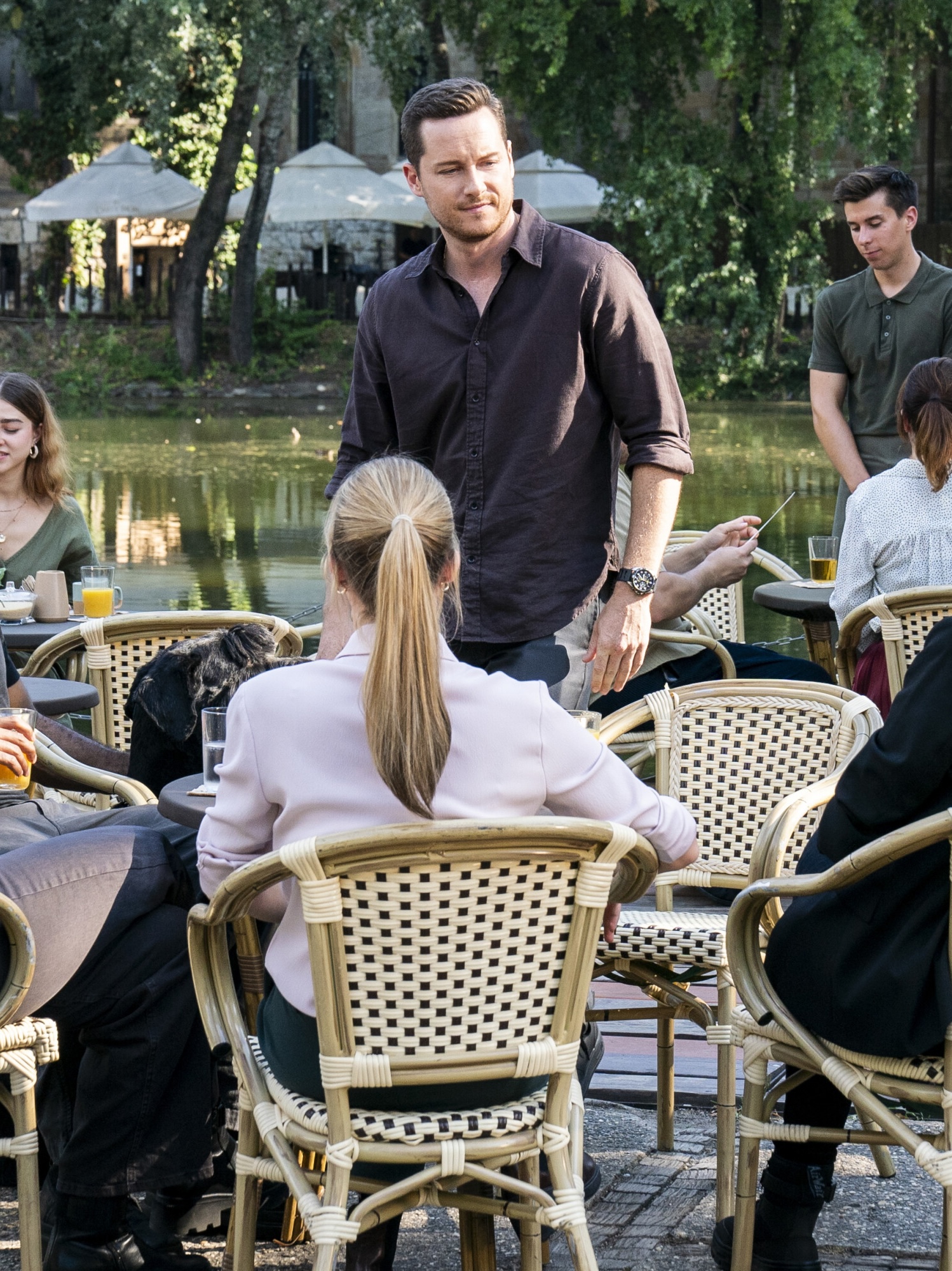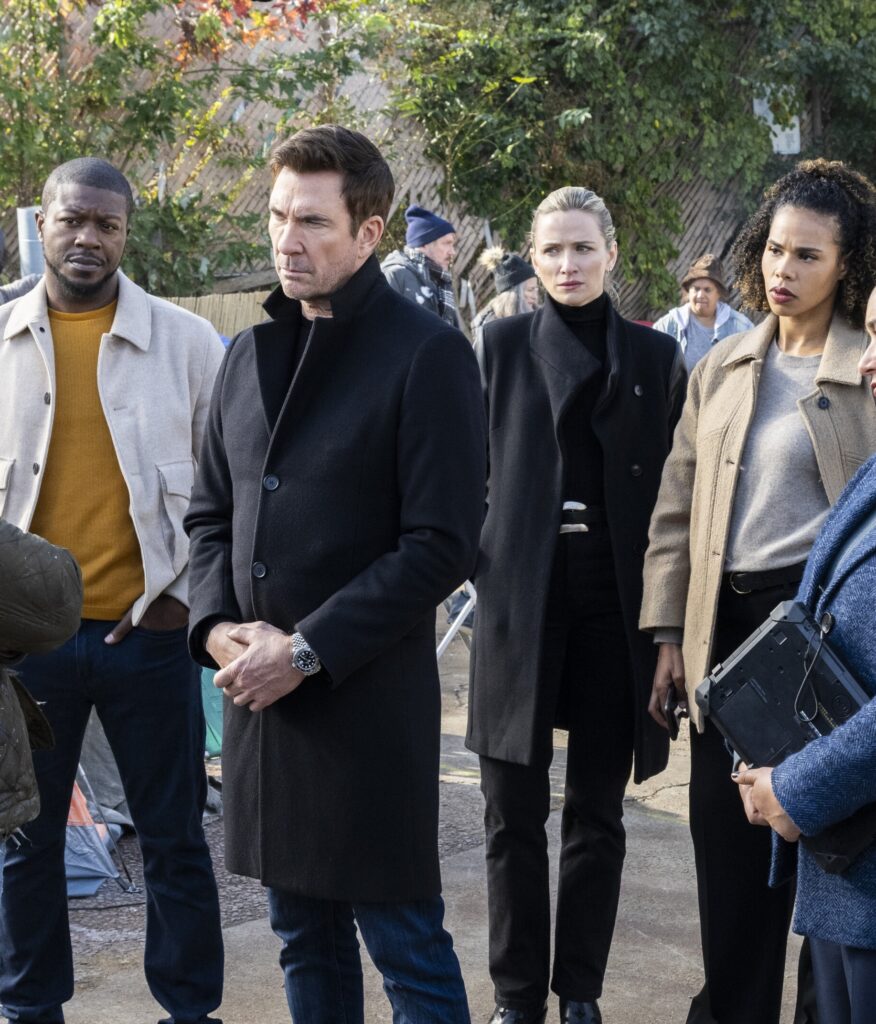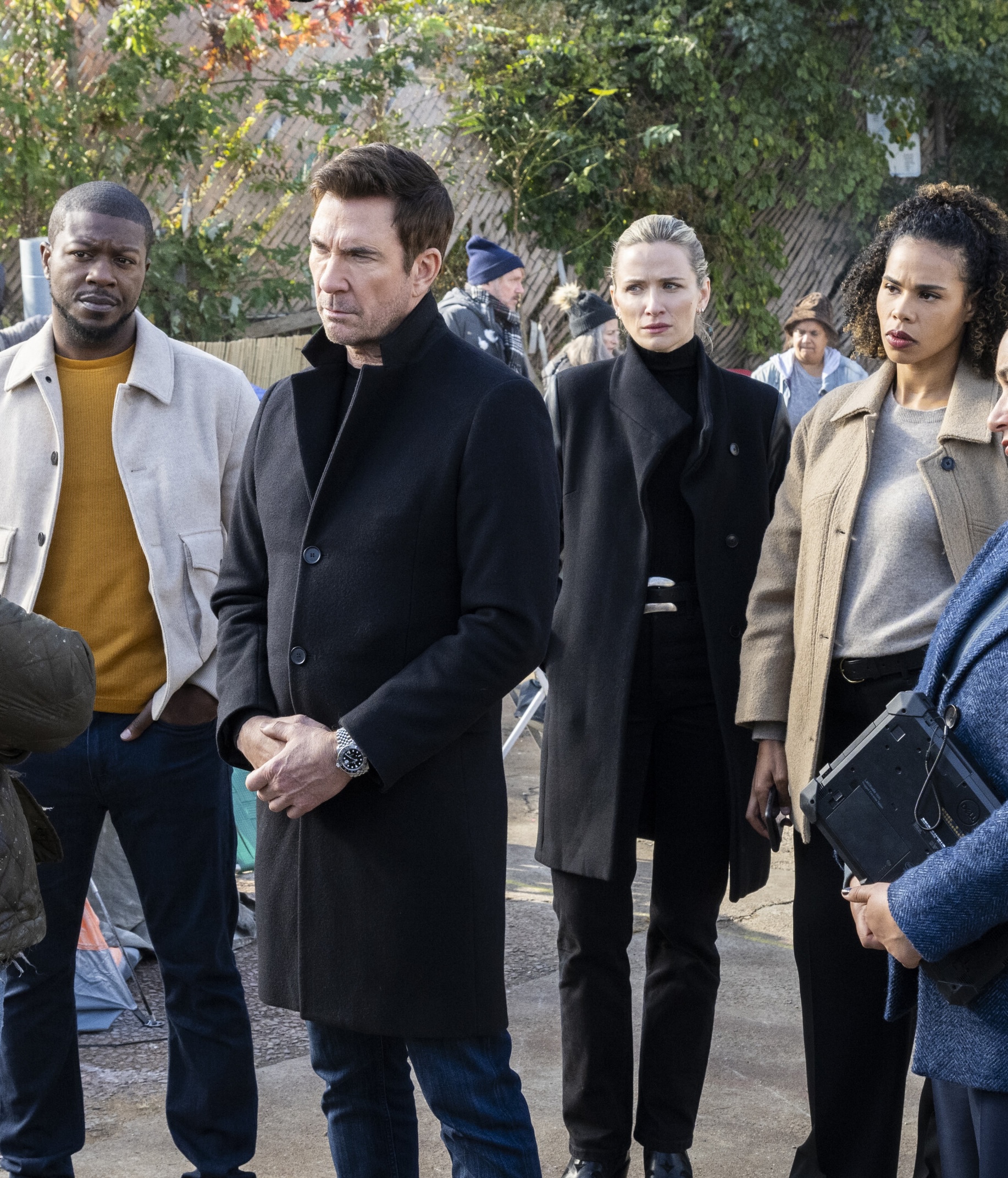An incredible ensemble could make or break an excellent sequence.
Lately, significantly with procedurals, it’s typically the forged chemistry — not simply the plot — that retains audiences coming again week after week.
No matter how anybody feels a few “lead,” it’s the total ensemble, the dynamics between characters, and the lived-in relationships that anchor a sequence and construct long-term loyalty.


Broadcast’s Development of Forged Reducing is Clearly a Value-Environment friendly Measure
Ensemble sequence have develop into the bread and butter of each broadcast and streaming, however this has additionally led to a regarding situation when exhibits can’t appear to maintain their ensembles intact.
And there’s no time like the current to specific concern.
We’re witnessing beloved sequence lose their sparkle as they chip away on the ensembles that made them profitable — normally within the title of “artistic selections” or, extra actually, funds.
As a lot because the showrunners of 9-1-1 or Fireplace Nation can argue that forged reductions serve the plot, it’s arduous to purchase when the outcomes really feel rushed, incomplete, or hole.
It’s simpler to consider what’s more and more apparent: making exhibits is dear, and prices rise with every passing season. Eliminating characters has develop into the business’s go-to budget-saving methodology.


This has been true with the One Chicago franchise specifically, and we’ve beforehand puzzled whether or not the forged shifts would injury the sequence’ high quality shifting ahead.
The usually polarizing resolution to bench characters for a sure variety of episodes every season has been a normal finances resolution, leading to Chicago PD‘s character-centric formatting for episodes or half the characters abruptly disappearing in an episode of Legislation & Order: SVU.
As irritating as these measures are, not less than it’s much less jarring than shedding characters we love. Naturally, we’d reasonably see them a few of the time than under no circumstances.
Nevertheless, it’s apparently not saving networks sufficient cash as a result of everyone seems to be leaning closely towards eliminating characters altogether.
Reducing Characters Ignores the Easy Undeniable fact that Characters Are the Story


Whereas that could be the quickest, most cost-efficient methodology of maintaining a sequence afloat, it can be probably the most damaging to a present general.
Characters aren’t simply automobiles to the plot — they’re the story.
They’re who folks connect with after they’re watching one thing. They’re essential to the plot and tales {that a} sequence tells.
There’s no method that reducing characters for the sake of funds (whether or not they admit that or not) doesn’t erode storytelling and relationships and finally disrupt our emotional funding in a sequence.
The artwork of storytelling falls by the wayside when it turns into extra about quantity crunching than creativity.


All the FBI franchise (earlier than they nixed Most Wished and Worldwide) had such a excessive forged turnover that it grew to become tough to maintain up or put money into characters anymore.
Maybe due to the procedural formatting, they believed it wouldn’t stand out as a lot if folks centered extra on the circumstances than the characters.
Forged Turnover Isn’t New, however It’s Killing Creativity and Storytelling
And so long as many of the main characters caught round, folks wouldn’t make such a stink about shedding the others, proper? However I’d be mendacity if I mentioned it didn’t severely influence the standard of the exhibits.
Tiffany’s abrupt write-out throughout FBI has left a gap within the sequence that they haven’t succeeded in filling. One thing is off with the forged chemistry, not to mention Scola’s capacity to attach with and retain a accomplice.


Each FBI: Worldwide and Most Wished have gone via so many characters that it’s sufficient to offer an individual whiplash. It’s irritating whenever you’re nearly to attach with somebody, after which the present pulls the rug from beneath your ft, they usually’re gone.
Most individuals are lastly coming round to Mitchell, and Tyler has been a enjoyable sufficient addition, however now CBS has canceled the sequence, and right here we’re, pissed off.
Was all of that upheaval even value it in the long run? Apparently not.
However nobody appears to consider how severely chipping away at an ensemble impacts the plot and writing for a sequence.
Take Chicago Fireplace, for instance. It typically garnered reward for the way effectively they’ve weathered forged modifications, however now it’s struggling, too.


How are These “Artistic Choices” When the Narrative Suffers or Is Incomplete?
The sequence nonetheless has staple characters, and for probably the most half, folks stick round lengthy sufficient to evolve totally, so after they do depart, it not less than looks like they’ve had a pleasant arc.
Nevertheless, Chicago Fireplace‘s newest forged shakeup is irritating and has many individuals scratching their heads.
Regardless of being underused for 2 seasons, the information that Ritter will exit the sequence feels disappointing however comprehensible.
The most important situation is that with just a few episodes remaining within the season, there’s no buildup to clarify how the present plans to put in writing him out.
What’s inexplicable is the choice to chop Jake Lockett’s Sam Carver, one of many few characters with a constant arc and unresolved storylines, together with an ongoing romantic subplot.


Viewers can’t assist however ask: What story does the sequence intend to comply with if it retains tearing the story aside?
Severely, who precisely do they intend to hold tales after Carver’s exit when he’s been such a outstanding, constant determine with an arc that’s not even near completion?
How can it’s a artistic resolution to eradicate a personality with a lot story left to inform? Wouldn’t they preserve him to, you already know, end his story?
Failing to Hold Ensembles Intact Isn’t Saving Sequence Creatively, It’s Killing Them
The identical downside plagues Fireplace Nation, the place Vince and Gabriela’s sudden, stunning exits threaten the sequence’ core.


Vince is the patriarch, the center and soul of the Leone household and the firehouse. Gabriela’s long-simmering relationship with Bode has been the emotional thread because the starting.
In what universe do folks envision how this sequence performs out with out Vince? It’s nearly akin to 9-1-1 taking Bobby Nash away from us after EIGHT seasons of him being this sequence’s father determine, lead, and staple.
It’s a call that’s so misguided that it has despatched viewers, critics, and extra into an uproar over this growth, and it has already left a pressure on a beloved sequence.
Like with 9-1-1, the issue is that in shedding Vince and Gabriela, it’s arduous to check how the sequence can transfer ahead and nonetheless have the identical attraction to viewers because it had earlier than.
Typically, an actor does select to depart, and followers perceive that. Life, alternatives, and profession objectives change. Viewers are prepared to adapt when it’s natural.


However increasingly, these departures aren’t voluntary — they’re monetary selections disguised as “creativity,” and audiences can inform.
It’s killing belief. It’s killing loyalty. And finally, it’s killing exhibits.
Broadcast is Dying, and It’s Self-Inflicted
These so-called “artistic selections” have as an alternative led to the standard of many exhibits shifting drastically sufficient to lose attraction to viewers.
With out viewers and first rate scores, a present is lifeless within the water.
Within the race to save cash, networks are gutting what makes broadcast TV particular: emotional, character-driven ensemble storytelling.


Reducing beloved characters disrupts the connection that retains exhibits alive — and as soon as belief is damaged, it’s robust to restore.
It already looks like Broadcast is slowly dying in entrance of our eyes.
It’s beginning to really feel like networks and people behind them are utterly out of contact with viewers, and the chasm between bigwigs and customers is rising wider by the second.
To outlive and thrive, networks should cease treating ensembles as expendable.
They should bear in mind why folks watch within the first place: characters, chemistry, and connection. In addition they should rebuild the belief of the viewers.


If there’s any hope of sustaining viewer curiosity, then a greater effort must be made to know what viewers need and respect.
Because it stands, this careless dismantling of ensembles may be very not often helpful to the present. At greatest, it detriments it; at worst, it’s a full-on demise knell for the sequence.
The way forward for broadcast tv seems to be bleak when networks don’t contemplate any of this.
Severely, TV Fanatic runs on caffeine, furry pals, and your assist.
Remark if this resonated with you. Reserve it if you wish to revisit it later. Share if you need others to have interaction with this subject, too. We respect you both method — actually.
TV Fanatic is looking for passionate contributors to share their voices throughout numerous article varieties. Suppose you will have what it takes to be a TV Fanatic? Click on right here for extra data and subsequent steps.

